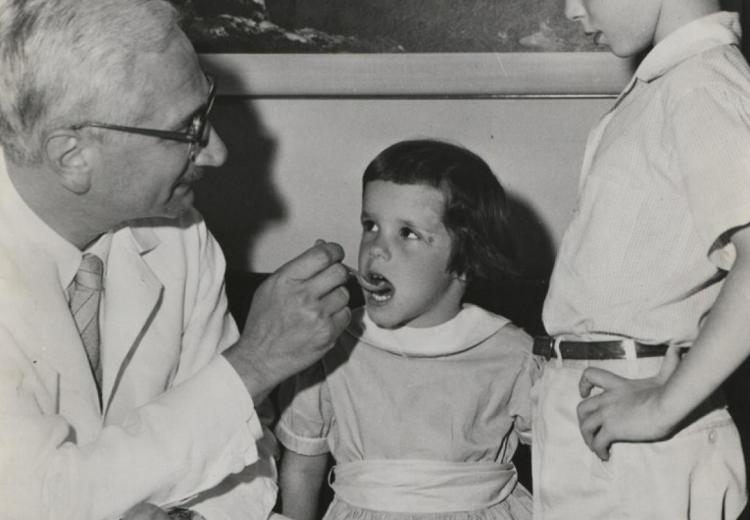Albert Sabin and Bioethics: Testing at the Chillicothe Federal Reformatory

Dr. Sabin administers his oral polio vaccine in sweet cherry syrup.
Bioethics is incredibly relevant today. Ever since scientists have been able to alter life, people have questioned the ethical implications of these actions. Students can easily point to an array of contemporary bioethical issues that impact society—performance enhancing drugs in sports, stem cell research, genetic issues like cloning, and many more. However, it is important for students to understand that bioethical issues have always been relevant, important aspects of scientific research. By examining the ethical implications of Dr. Albert Sabin’s testing of polio vaccines on "volunteer" inmates in Chillicothe’s Federal Reformatory, students will be able to determine whether or not these actions were ethical.
In this lesson, students will work through four main questions of bioethics based on information from the Department of Bioethics at the National Institutes of Health to determine whether or not Sabin acted ethically; learn how to approach these questions using primary and secondary sources; and come to their own conclusions uses evidence-based logical reasoning.
Guiding Questions
How do you define the term “bioethics”?
Did Albert Sabin act ethically in his use of prisoners to test the polio vaccine?
What is the proper role of government when addressing public health?
Learning Objectives
Explain the effects of polio and the importance of the polio vaccine.
Define the term “bioethics” and understand four key questions of bioethics.
Defend a position on Sabin’s use of prisoners to test the polio vaccine based on documentary analysis.
